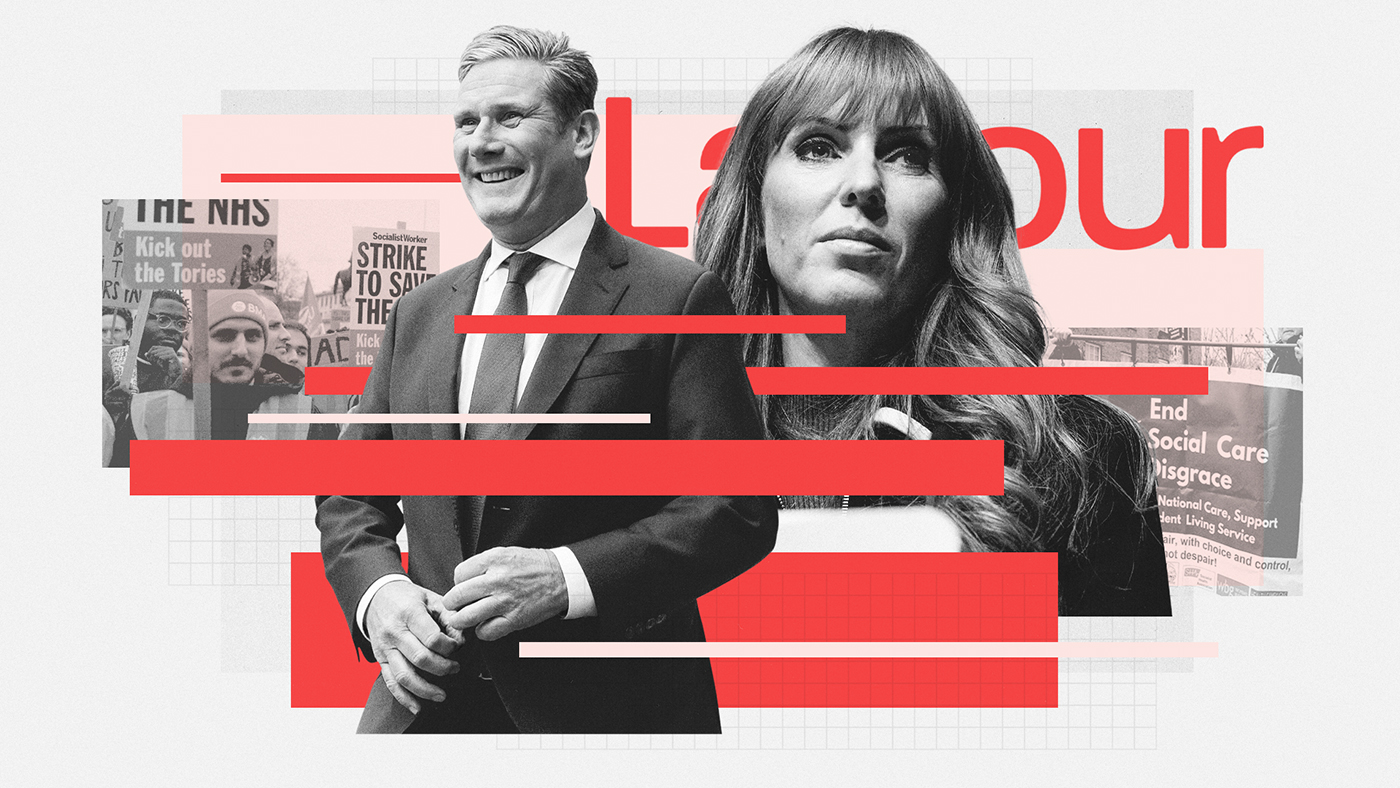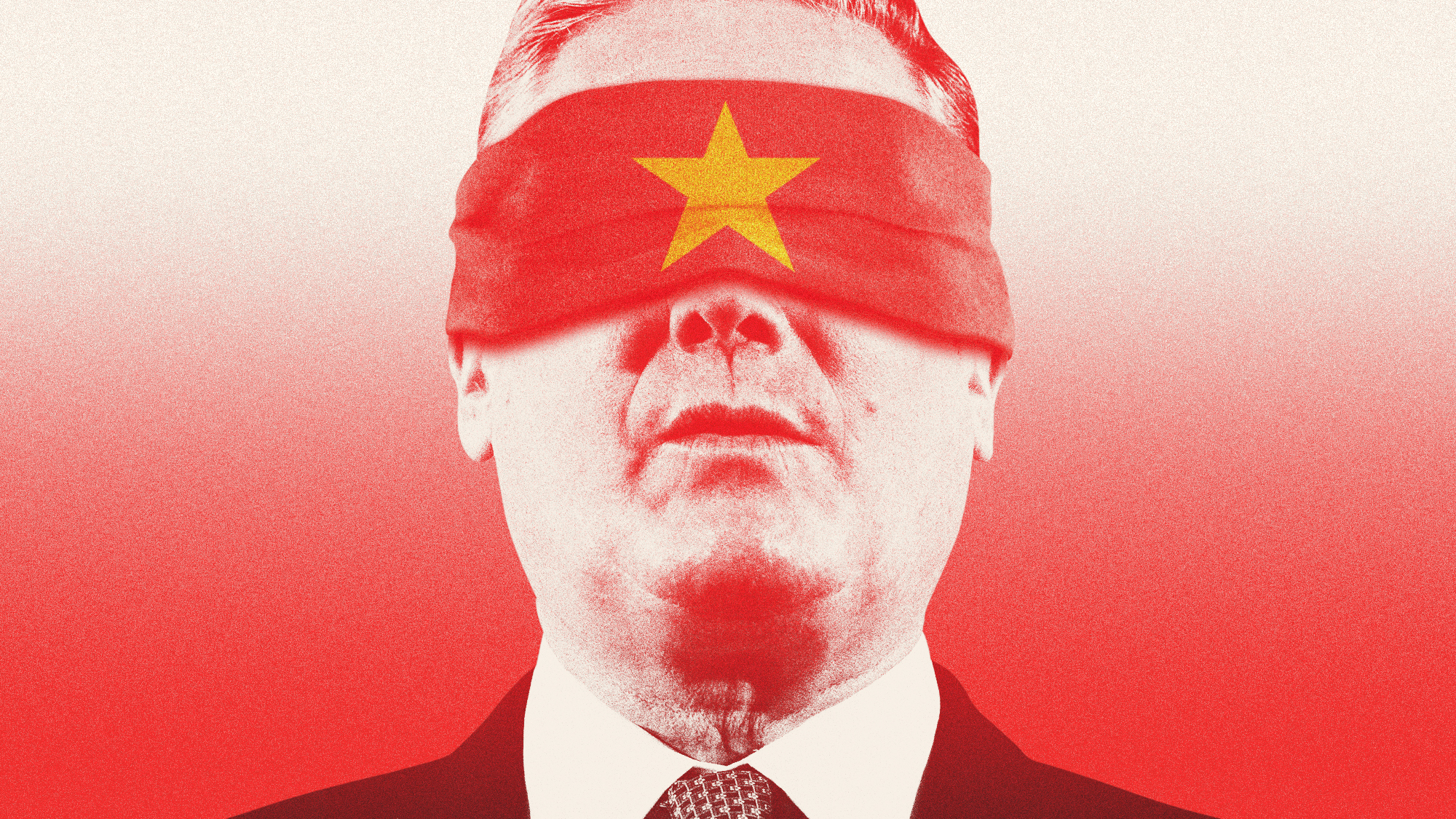Will Labour's election promises be exciting enough for voters?
New employment rights bill in its first 100 days in office should the party win power

A free daily email with the biggest news stories of the day – and the best features from TheWeek.com
You are now subscribed
Your newsletter sign-up was successful
Deputy Labour leader Angela Rayner has vowed to win over voters at the next general election as she revealed Labour's vision to strengthen workers' rights.
Speaking at the TUC conference in Liverpool, Rayner gave a "cast iron commitment" to push through an employment rights bill in the party's first 100 days in office should Labour win power.
Labour's "New Deal for Working People" would include protections against unfair dismissal, a ban on zero-hour contracts, more flexible working and ending so-called "fire and rehire" practices. Rayner also promised to repeal the government's "vicious" anti-trade union laws, such as its controversial minimum service levels bill.
The Week
Escape your echo chamber. Get the facts behind the news, plus analysis from multiple perspectives.

Sign up for The Week's Free Newsletters
From our morning news briefing to a weekly Good News Newsletter, get the best of The Week delivered directly to your inbox.
From our morning news briefing to a weekly Good News Newsletter, get the best of The Week delivered directly to your inbox.
What did the papers say?
Labour has faced attacks over the summer from union leaders, who claim the party's plans to strengthen workers' rights have been "watered down".
This came as Labour leader Keir Starmer went on what party insiders have called the "smoked salmon and scrambled egg" offensive – an attempt to "woo corporate leaders" and fend off Conservative attacks that his party is anti-business, said the Financial Times (FT).
The paper reported that Labour had "diluted" plans to create a single "worker" status for all but the genuinely self-employed, in a bid to boost protections for gig economy workers. Instead, the party said it would consult on this policy after entering government. It also made changes to "day one" proposals on sick pay, parental leave and unfair dismissal.
Writing in The Sunday Times this weekend, Sharon Graham, general secretary of Unite, accused Labour of becoming a "Nineties tribute act" to former prime minister Tony Blair and said the party could not lead Britain out of decline unless it pursued bolder policies.
A free daily email with the biggest news stories of the day – and the best features from TheWeek.com
Over the summer, Starmer's Labour did articulate a "clear vision" for government: "everything will continue to be awful. Nothing will get better. Hope is for fools," said Adam Ramsay for Open Democracy. "And, most importantly, no one with wealth or power need worry themselves that any of either will be taken from them."
Labour seems to be eschewing vote-winning policies. Despite public sentiment, with two-thirds of voters favouring increased wealth taxes, Labour's shadow chancellor, Rachel Reeves, has emphasised her reluctance to pursue such policies. Similarly, while 63% of Britons believe taxes on the rich are too low, Starmer has expressed no intention to raise income tax for top earners, instead emphasising his goal of reducing taxes. But only 5% of voters believe the rich are taxed too much, continued Ramsay.
Other policies have been placed on the "scrapheap", such as Labour's Green New Deal and promises to replace Universal Credit and scrap the two-child benefit cap.
Some sections of the press regard Starmer's policy approach as "genius" in allowing Labour to adopt a narrative similar to the Tories. But it is also possible, said Ramsay, that the Labour leader "being such an obvious liar" by getting himself elected by his party on one set of promises and then "immediately breaking them" will provide the Conservatives with the ammunition they need to "successfully take him down".
But Labour looks set to reveal a more "meaty" agenda on workers' rights and trade union laws than many realise, said Sky News’ deputy political editor Sam Coates. It is this policy area that could become "one of the central dividing lines when voters compare Sunak and Starmer".
"Potentially the most far reaching and controversial change" is a pledge to reintroduce "fair pay agreements" in some sectors, beginning with adult social care. Yet one unnamed member of the shadow cabinet said they feared Labour was "not prepared to be exciting enough", reported Coates.
What next?
While there may still be internal division on policy, recent polling indicates strong public support for Labour's proposals, even among Conservative voters, said Labour List. This includes support for day-one protections against unfair dismissal, a ban on fire and rehire practices, rights for gig economy workers, and the elimination of zero-hours contracts.
Meanwhile, the Conservatives electoral chances appear to be on ever more shaky ground. According to new YouGov polling, more than half of voters say there are no circumstances in which they would consider backing the Conservatives at the next election, reported The Times.
Sorcha Bradley is a writer at The Week and a regular on “The Week Unwrapped” podcast. She worked at The Week magazine for a year and a half before taking up her current role with the digital team, where she mostly covers UK current affairs and politics. Before joining The Week, Sorcha worked at slow-news start-up Tortoise Media. She has also written for Sky News, The Sunday Times, the London Evening Standard and Grazia magazine, among other publications. She has a master’s in newspaper journalism from City, University of London, where she specialised in political journalism.
-
 Film reviews: ‘Send Help’ and ‘Private Life’
Film reviews: ‘Send Help’ and ‘Private Life’Feature An office doormat is stranded alone with her awful boss and a frazzled therapist turns amateur murder investigator
-
 Movies to watch in February
Movies to watch in Februarythe week recommends Time travelers, multiverse hoppers and an Iraqi parable highlight this month’s offerings during the depths of winter
-
 ICE’s facial scanning is the tip of the surveillance iceberg
ICE’s facial scanning is the tip of the surveillance icebergIN THE SPOTLIGHT Federal troops are increasingly turning to high-tech tracking tools that push the boundaries of personal privacy
-
 Will Peter Mandelson and Andrew testify to US Congress?
Will Peter Mandelson and Andrew testify to US Congress?Today's Big Question Could political pressure overcome legal obstacles and force either man to give evidence over their relationship with Jeffrey Epstein?
-
 Reforming the House of Lords
Reforming the House of LordsThe Explainer Keir Starmer’s government regards reform of the House of Lords as ‘long overdue and essential’
-
 How long can Keir Starmer last as Labour leader?
How long can Keir Starmer last as Labour leader?Today's Big Question Pathway to a coup ‘still unclear’ even as potential challengers begin manoeuvring into position
-
 What is at stake for Starmer in China?
What is at stake for Starmer in China?Today’s Big Question The British PM will have to ‘play it tough’ to achieve ‘substantive’ outcomes, while China looks to draw Britain away from US influence
-
 Can Starmer continue to walk the Trump tightrope?
Can Starmer continue to walk the Trump tightrope?Today's Big Question PM condemns US tariff threat but is less confrontational than some European allies
-
 Alaa Abd el-Fattah: should Egyptian dissident be stripped of UK citizenship?
Alaa Abd el-Fattah: should Egyptian dissident be stripped of UK citizenship?Today's Big Question Resurfaced social media posts appear to show the democracy activist calling for the killing of Zionists and police
-
 Is Keir Starmer being hoodwinked by China?
Is Keir Starmer being hoodwinked by China?Today's Big Question PM’s attempt to separate politics and security from trade and business is ‘naïve’
-
 Nigel Farage’s £9mn windfall: will it smooth his path to power?
Nigel Farage’s £9mn windfall: will it smooth his path to power?In Depth The record donation has come amidst rumours of collaboration with the Conservatives and allegations of racism in Farage's school days